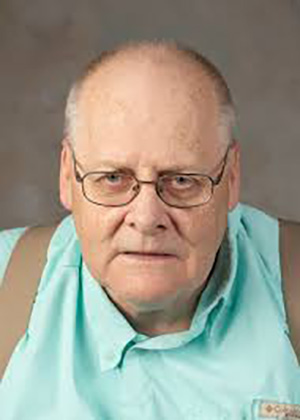By Greg Markley
A character in Shakespeare’s The Tempest says: “What’s past is prologue.” What is happening today follows onto what we were doing then, in preparing for good or evil. So the past is not gone in that it brought us forward to the opportunities and pitfalls of this place and time.
The recently revised U.S. Citizenship Test (or Naturalization Exam) has features of the previous one, from 2008, in questions and themes. But the version of December 2020 has been widely panned in the media. Pundits say it has too much of a conservative bent and is designed to make passage tougher.
Simon Romero and Miriam Jordan, in an otherwise thorough article in The New York Times, were shocked — shocked — about nuanced questions such as on states’ rights and the Vietnam War. They say adding a question on the Tenth Amendment was a sop to conservatives. The 10th is oft-forgotten but still worthy of a citizenship test question, I say.
It reads: “The powers not delegated to the United States by the Constitution, nor prohibited by it to the States, are reserved to the States respectively, or to the people.” It is in the Bill of Rights, for gosh sakes, and gave birth to Federalism. Don’t take it lightly. It’s okay to have two questions about it on this test.
The new question, “Why did the United States enter the Vietnam War?” has as the correct answer, “to stop the spread of Communism.” Romero and Jordan feel “The test does not take on the issue of the vehement protests or the huge death toll stemming from the war.” That’s silly. The war was very popular until early 1966 and no one knew the death toll going in.
I wrote exam questions while teaching as an adjunct at two colleges. I know that usually there are two “distractors,” one almost correct answer, and the correct answer itself. Since LBJ and key U.S. senators did promote our involvement as “to stop communism” that is the best answer. These critics may think people seeking U.S. citizenship must have undergrad degrees in history, as a minimum.
In 2018, only one-third of Americans could answer how many justices serve on the Supreme Court. Many named three or fewer justices; yet they rail on about “judicial activism” when they don’t even consult Google about who these men and women justices are!
Meantime, immigrant advocates are concerned the new, more complex test could make it tougher for poor immigrants from non-English-speaking countries. They would need to spend more time studying, while improving their English. This may lead to fewer immigrants at polling booths. Yes, but the most diligent studiers will succeed and make great citizens.
“It’s a last-ditch effort on their way out the door for the (Trump) administration to keep people from realizing their dreams of becoming citizens,” said Eric Cohen, executive director of the Immigrant Legal Resource Center in San Francisco. But the passing rate on the previous test was 91%. That’s not bad! Let’s hope this version gets a good rate, too.
Steven Lubet, a prominent law professor at Northwestern University, has many qualms about the new citizenship test. One is that few historical women are cited, with plenty of men highlighted. I agree, women have been purposely underrepresented on tests such as these for decades; that must stop.
“It’s not hard to find more evidence of the test’s pronounced conservative bent,” wrote Lubet in Politico. “There are five questions and answers that include the Federalist Papers, revered by today’s American conservatives, including the Federalist Society, a legal organization whose members have included many of Trump’s judicial nominees.”
He said there are just two questions on the civil rights movement and three about women’s suffrage. If true, then it does not reflect the achievements of either the civil rights movement or the advancement of women in America. Maybe five questions on the Federalist Papers are disproportionate; 2 or 3 will do.
I noted above that Shakespeare, in The Tempest, wrote: “What’s past is prologue.” Now to novelist William Faulkner: “The past is never dead. It’s not even past.” The past is always with us, as a living memory. So it is with the U.S. Citizenship Test. It changes sometimes, but always present is the question of whether the U.S. should make citizenship easy or difficult to obtain. In our immigrant nation, judging who can join us in our wonderful country is never easy.
Greg Markley has lived in Lee County for 21 years, on and off. He has master’s degrees in Education and History. He taught politics as an adjunct in Georgia and Alabama. He was U.S. Army Europe Journalist of the Year (1993) for articles from Croatia, Germany, and Macedonia.

